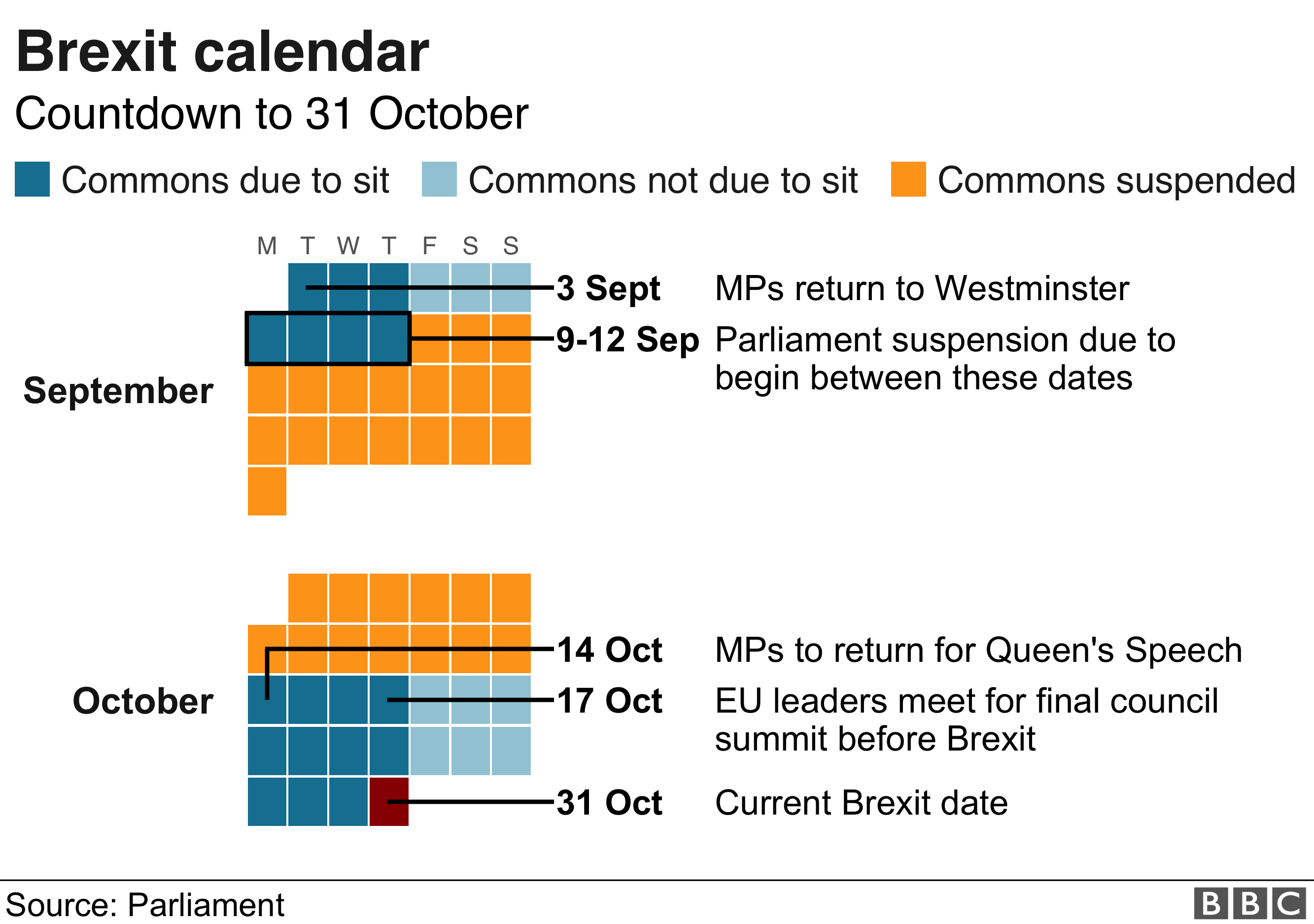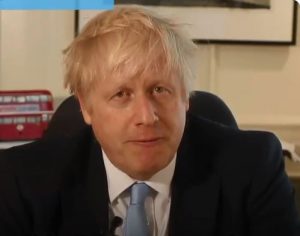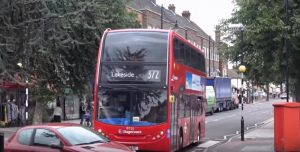
BBC News: Conservative MPs have been warned not to rebel against the government over Brexit, as opposition MPs plan legislation to stop no deal.
A senior source from the whips office – which ensures MPs vote in line with the party – said MPs who voted to block no deal would “destroy” the government’s Brexit negotiating position.
Rebels will have the whip withdrawn and be deselected, the source said.
Former Tory MP Nick Boles said the move meant the “hard right has taken over”.
Elsewhere, former Justice Secretary David Gauke has written to the attorney general to demand the government commits to abiding by the rule of law, after cabinet minister Michael Gove refused on Sunday to guarantee Downing Street would abide by any legislation aimed at stopping no deal.
In a letter to Geoffrey Cox – the government’s senior law officer – he criticised Mr Gove for his “equivocal answers.”
Mr Gauke, who is opposed to a no-deal Brexit, said that refusal to comply with the law could “undermine the institutions and values we all hold dear”.
Privately, Prime Minister Boris Johnson’s critics are warning they will seek a judicial review of the government’s action should ministers choose to flout the will of Parliament by ignoring a no deal law.
It comes as Labour’s shadow cabinet is to finalise its plans to stop no deal.
Mr Johnson has said the UK must leave the EU on 31 October, with or without a deal, prompting a number of MPs to unite to try to prevent the UK leaving without an agreement.
MPs will this week seek to bring forward legislation against no deal in Parliament, with specific details expected to be outlined on Tuesday.
But in a warning to Tory MPs thinking of supporting such efforts, a senior Conservative whips office source said any MP who failed to vote with the government would lose the party whip – meaning they would effectively be expelled from the party – and would not be able to stand as a Conservative candidate in an election.
The source said if Tory MPs fail to vote with the government on Tuesday they will be “destroying” its negotiating position and “handing control of Parliament to Jeremy Corbyn”.
Rebelling will be classed as voting against the government or abstaining.
The stance was agreed at a Chequers strategy summit Mr Johnson held with senior aides and Tory whips.
‘Hard right’
Mr Boles, the independent MP who quit the Conservatives over Brexit, told BBC Radio 4’s Today programme the party had been “taken over” by the “hard right”.
“The Conservative Party has fallen prey to an almost religious obsession with the hardest form of Brexit, which is obviously a Brexit with no deal,” he said.
He said this was made clear with the resignation of Scottish Tory leader Ruth Davidson last week, who he described as a “progressive, modern, liberal Conservative”.
“Her resignation… makes it quite clear that there is no place in this party for people like her, me, or the people listed.”
‘A simple choice’
The whips office source said there was a chance of reaching a deal on 17 October – the date of the next EU summit – “only because Brussels realises the prime minister is totally committed to leaving on 31 October”.
“All MPs face a simple choice on Tuesday – to vote with the government and preserve the chance of a deal or vote with Corbyn and destroy any chance of a deal,” the whips office source added.
Former cabinet minister Rory Stewart responded to a tweet listing some of the Tory MPs who could be expelled for not voting with the government by saying “and me too I hope”.
Analysis from Laura Kuenssberg
Cranking up the pressure on Tory rebels at the start of this crucial week could create a convenient group of bogeymen who could be chucked out of the party, and take the blame.
Don’t be surprised if by the end of the day No 10 has found another way of upping the pressure still further.
It is far from inevitable, but it’s not impossible that, within a matter of days, we could all be asked to go to the polls again.
A prime minister ready to give up his tiny working majority sounds like a prime minister ready to call an election, if needs be.

Meanwhile, Jeremy Corbyn will use a speech on Monday to say Labour is doing “everything necessary to pull our country back from the brink”.
Speaking ahead of a meeting of the shadow cabinet, where Labour will finalise plans aimed at stopping no deal, he will call the prime minister’s plans to shut down, or prorogue, Parliament “an attack on democracy which will be resisted”.
Mr Johnson has said he asked for the suspension in order to hold a Queen’s Speech – which sets out a list of laws the government hopes to get approved by Parliament – on 14 October.
But Labour says the suspension is to force through a no-deal Brexit.
What could happen next week?
Any new law has to pass all stages of both Houses of Parliament – this usually take weeks but could be done in as little as three days this week.
The bill could be challenged by the government and fall at any stage. It could fail to achieve enough support from either MPs or peers in votes held in the Houses.
- Tuesday: MPs return to the Commons after their summer recess. Opposition MPs are expected to put forward legislation to stop no deal under “SO24” or Standing Order 24 – the rule allowing MPs to ask for a debate on a “specific and important matter that should have urgent consideration”. This would be the bill’s first reading – its formal introduction to the House.
- Wednesday: In theory, the bill would then be debated and could potentially pass through all further Commons stages. However, the bill must pass through a series of votes and receive backing from more than half of MPs to pass to the next stage. Boris Johnson’s first PMQs as prime minister also takes place.
- Thursday: If MPs passed the bill, it could then reach the House of Lords by Thursday, but consideration of the bill could spill into Monday. It will be debated and voted on. The House is not due to sit on Friday.
- Monday, 9 September: If the bill passes these hurdles it could gain Royal Assent, formally making it law.
This could be a tight timetable as there are as few as four sitting days before Parliament is suspended. This is due to happen between Monday, 9 September, and Thursday, 12 September, under plans announced by the prime minister.
Another hurdle for any bill could come in the Lords. Although opponents to no deal have a large majority, peers wanting to block legislation could talk until there is no time left.
Elsewhere, former Labour Prime Minister Tony Blair will warn on Monday that a general election would be an “elephant trap” Labour must not fall into.
“It is counter-intuitive for opposition parties to refuse an election,” he will say in a speech.
“But in this exceptional case it is vital they do so, as a matter of principle, until Brexit is resolved.”
An early election can be held if a motion is agreed by at least two-thirds of the House or Commons or if a motion of no confidence is passed and no alternative government is confirmed within 14 days.




